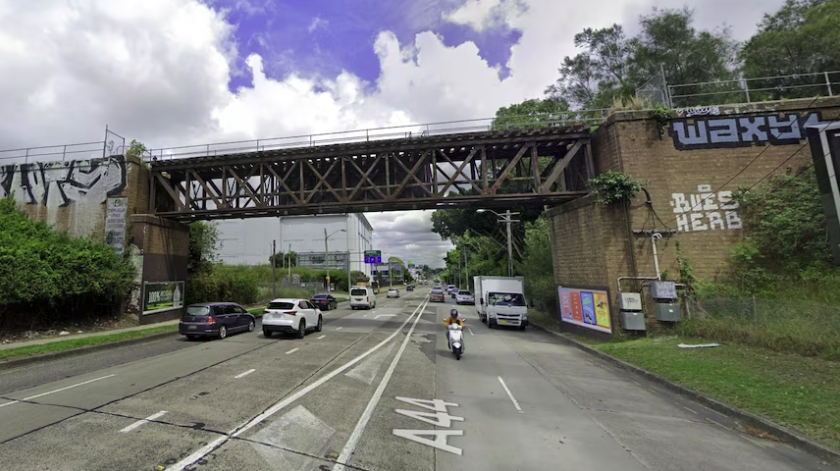A rail bridge that has not been used for more than 30 years is set to be transformed into a pedestrian and cycle path to connect residents to green space across some of Sydney’s busiest roadways.
The rusty bridge that spans 13 lanes of traffic over Parramatta Rd-Great Western Highway and the M4 was last used in 1991 as the Abattoirs Branch train line, servicing the area’s abattoirs, brickworks, and the Homebush Saleyards.
The line and several stations and platforms were located where Sydney Olympic Park now resides.
Now Cumberland Council wants to renovate it as part of the Pippita Rail Trail project, linking up 20,000 residents in Lidcombe with open space at Olympic Park.
The council has released its first images of the proposed two-kilometre trail between Lidcombe train station and Edwin Flack Avenue in the Olympic Park precinct.
“The Pippita Rail Trail will offer a unique opportunity for cycling or walking directly from Lidcombe to Sydney Olympic Park,” Cumberland Council Mayor Lisa Lake said.
The project, named after the former Pippita Station on the Abattoirs Branch line, received $770,000 from the state government’s Get NSW Active program.
“This transformation will create a destination that locals can use every day, and people from all over Sydney can visit and enjoy, while recognising the rich history of the area’s former railway line,” NSW Transport Minister Jo Haylen said.
Plans for the shared pathway also include planting trees alongside to help negate the effects of urban heat.
Council is calling for feedback from the community about the project until March 10.
Chance to open ‘missing link’
Cyclist and advocate for the project Andrew Moss said the project would link up popular cycling areas including the Parramatta River, Olympic Park, Rookwood Cemetery, and the Cooks River.
“You’re talking about a middle missing link of infrastructure that could link all these other exciting places that people currently use and are proven to be very popular,” Mr Moss said.
Mr Moss was also excited about the project creating another way of entering and leaving the Olympic precinct when sporting and musical events were on.
“Olympic station is not easy to use and get to,” Mr Moss said.
“There’s always massive queues and so forth, so why not have an alternative?”

